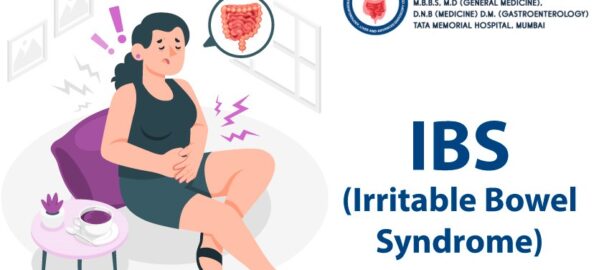Understanding Irritable Bowel Syndrome (IBS): Causes, Symptoms, and Treatment
Irritable Bowel Syndrome (IBS) is a common gastrointestinal disorder that affects the large intestine. It is a chronic condition that can cause a range of uncomfortable symptoms, including abdominal pain, bloating, and changes in bowel habits. While the exact cause of IBS is unknown, there are several factors that are believed to contribute to its development.
Causes of Irritable Bowel Syndrome
While the exact cause of IBS is not fully understood, researchers believe that it is a combination of several factors. These factors can include:
- Abnormalities in the gut: Some studies suggest that people with IBS may have an oversensitive or hyperactive gut, which can lead to increased pain and discomfort.
- Changes in gut bacteria: The balance of bacteria in the gut may play a role in the development of IBS. Imbalances in gut bacteria can lead to increased inflammation and symptoms.
- Food intolerances: Certain foods, such as dairy products, caffeine, and artificial sweeteners, can trigger symptoms in some people with IBS.
- Stress and mental health: Stress and anxiety can worsen symptoms of IBS. The gut and brain are closely connected, and emotional distress can affect the functioning of the digestive system.
- Hormonal changes: Women are more likely to develop IBS, suggesting that hormonal changes may play a role in the condition.
Symptoms of Irritable Bowel Syndrome
The symptoms of IBS can vary from person to person, but the most common symptoms include:
- Abdominal pain or cramping: This is often the most noticeable symptom of IBS. The pain can range from mild to severe and may be relieved by a bowel movement.
- Bloating and gas: Many people with IBS experience bloating and excessive gas. This can cause discomfort and a feeling of fullness.
- Diarrhea or constipation: IBS can cause changes in bowel habits, leading to either frequent loose stools or infrequent, hard stools.
- Mucus in the stool: Some people with IBS may notice mucus in their stools. This is usually not a cause for concern, but it can be a symptom of IBS.
- Fatigue: Chronic fatigue is a common symptom of IBS. It can be caused by the physical and emotional toll of living with the condition.
Treatment of Irritable Bowel Syndrome
While there is no cure for IBS, there are several treatment options available to help manage the symptoms and improve quality of life. Treatment plans are often tailored to the individual and may include a combination of the following:
- Dietary changes: Avoiding trigger foods and following a low FODMAP diet can help reduce symptoms. FODMAPs are a group of carbohydrates that can be poorly absorbed in the gut and may trigger IBS symptoms.
- Stress management: Learning stress management techniques, such as deep breathing exercises or meditation, can help reduce the impact of stress on the digestive system.
- Medications: Over-the-counter medications, such as antispasmodics and laxatives, can help relieve symptoms. In some cases, prescription medications may be necessary to manage more severe symptoms.
- Probiotics: Taking probiotics, which are beneficial bacteria, may help restore the balance of gut bacteria and reduce symptoms.
- Alternative therapies: Some people find relief from IBS symptoms through alternative therapies such as acupuncture, hypnotherapy, or herbal remedies. However, it is important to consult with a gastroenterologist in Rohini before trying any alternative treatments.
Conclusion
Irritable Bowel Syndrome is a chronic condition that can significantly impact a person’s quality of life. While the exact cause is unknown, there are several factors that are believed to contribute to its development. The symptoms of IBS can vary from person to person, but the most common symptoms include abdominal pain, bloating, and changes in bowel habits. While there is no cure for IBS, there are several treatment options available to help manage the symptoms and improve quality of life. It may take some time and experimentation to find the right combination of treatments, but with the help of a gastroenterologist in Pitampura, it is possible to find relief from the symptoms of IBS.

